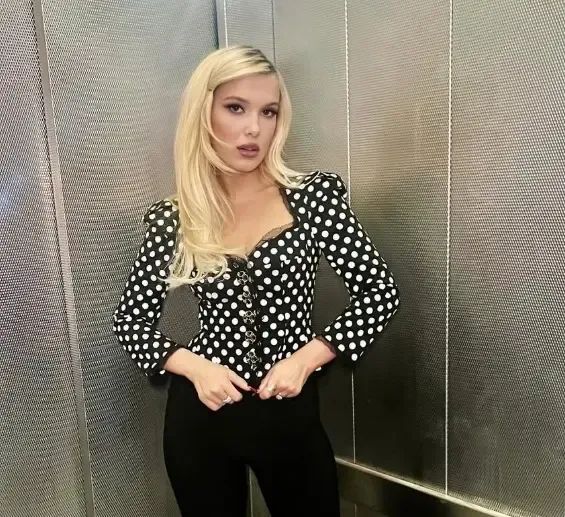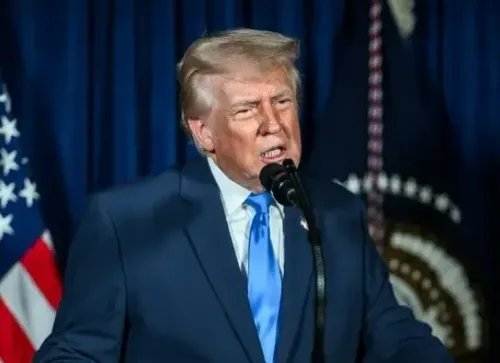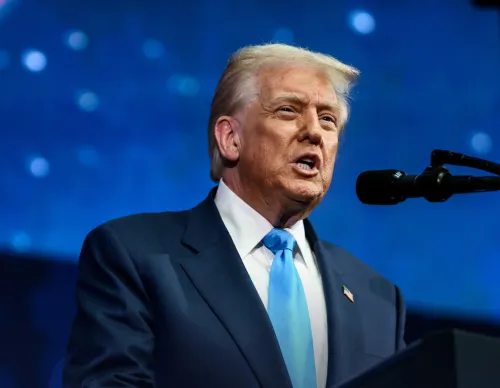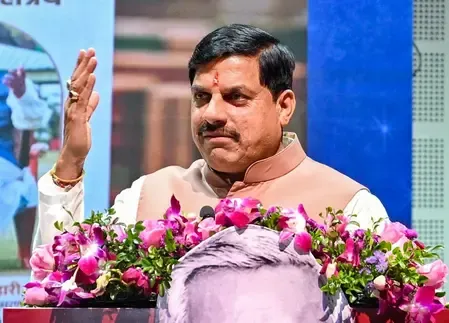Why is Millie Bobby Brown Criticizing Media Headlines?

Synopsis
Key Takeaways
- Millie Bobby Brown calls out media bullying
- Negative headlines affect mental health
- Press should be sensitive towards young celebrities
- Importance of self-expression in young women
- Advocacy for kinder media practices
Los Angeles, Nov 6 (NationPress) The 'Stranger Things' actress Millie Bobby Brown is taking a stand against the media, voicing her discontent. She expressed that her primary concern with journalists is their tendency to harshly criticize celebrities in their article titles.
In March, the actress gained significant attention after sharing an Instagram video where she confronted numerous publications for their hurtful headlines that targeted her looks, according to 'Variety'.
This situation arose while she was promoting Netflix's 'The Electric State'. Brown revealed to Vogue that she was “crying every day” due to the impact of these headlines.
She recounted, “Oh my God, what has she done with her face? Why has she gone blonde? She looks 60 years old”, as she mocked the media's portrayal of her. Brown stated, “I respect journalism. I love reading articles about my favorite individuals and learning about their lives. While I acknowledge the presence of paparazzi, which can be invasive and uncomfortable for me, I recognize it is part of your job. However, don’t begin your headline by attacking me. It’s simply wrong and akin to bullying, especially for young women entering this field who are already grappling with their own uncertainties.”
As reported by 'Variety', some of the headlines aimed at Brown included “Why are Gen Zers like Millie Bobby Brown ageing so badly?” and “What has Millie Bobby Brown done to her face?” These articles left Brown feeling “depressed for three, four days”, she shared with Vogue. The actress even recalled crying backstage at the BRIT Awards.
“I was emotional while getting my hair and make-up done. I was even tearing up backstage,” Brown reflected. “Her attitude is very much like ‘F* ’em’, which I understood deep down, but hearing someone else articulate it made me think, ‘Yes! That’s exactly it.'”
Brown added, “If my choice to dye my hair blonde or wear more make-up bothers you, I will speak out—not just for myself, but for every girl who wants to experiment with her look.” She insisted, “Get off my f case, okay? I’m 21. I intend to have fun, explore, and be true to myself.”
In her March Instagram video, Brown criticized the media for implying that she should remain “frozen in time” regarding her appearance, and she condemned “those who are so eager to tear down young women.”










